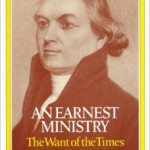Last week my article, “The Care of Souls: The Heart of the Reformation,” was published in the latest issue of Themelios. The article is my attempt to highlight the pastoral impulse behind this pivotal moment in history. Amidst the important theological and political issues which were involved in this historic movement and which continue to be discussed today, my aim was to remind us that it all sprang from the earnest desire to help real people know God. Here is a paragraph from the opening of the article.
The Reformation was a diverse movement. But at its center was a pulsing, yearning concern for the well-being of souls. Its leaders were pastors at pains to lead their flock—and others from around the world—to forgiveness before God and the resultant living hope, the knowledge of God’s care and presence in the real hardships of this world and the certain hope of resurrection.
In spite of some stereotypes, the Reformation leaders labored to see souls saved and disciple in the grace of God. I have tried to illustrate these concerns with extracts from the writings of several of the leading Reformers.
May our ministries also be marked by such “a pulsing, yearning concern for the well-being of souls.”



